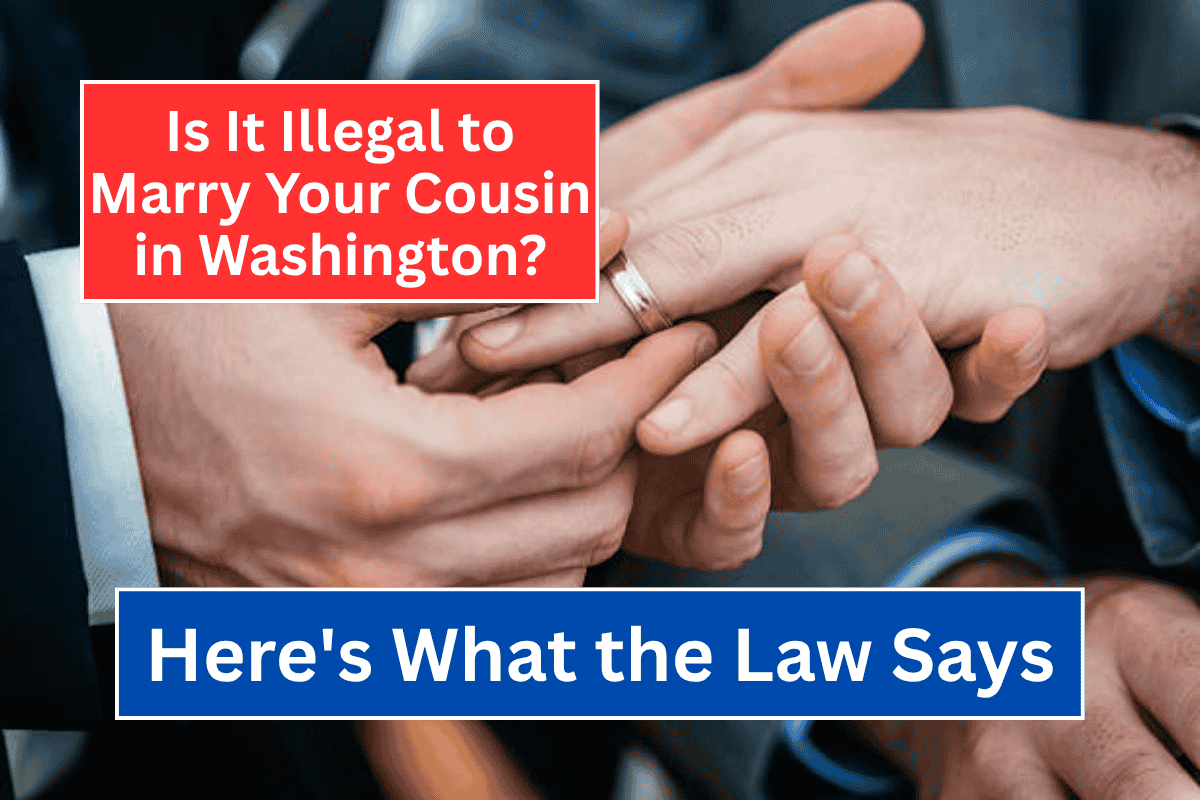In Washington state, the laws around cousin marriages are clear and restrictive. While many states have different laws regarding cousin marriages, Washington specifically prohibits marriage between first cousins and closer relationships, including first cousins once removed and half first cousins.
However, second cousins and more distant relationships are allowed to marry. In this article, we’ll break down what these laws mean, explain different cousin relationships, and clarify what is and isn’t allowed under Washington’s marriage laws.
Washington’s Marriage Laws on Cousins
The state of Washington has clear rules about which family relationships are too close for marriage. The law prohibits marriage between individuals who are nearer of kin than second cousins.
This means that first cousins, as well as first cousins once removed and half first cousins, cannot marry in Washington. Here’s the relevant language from the law:
“When the spouses are nearer of kin to each other than second cousins, whether of the whole or half blood computing by the rules of the civil law.”
This means that while second cousins and more distant cousins are allowed to marry, first cousins and relationships that are closer, such as first cousins once removed, are prohibited.
What Does “Whole or Half Blood” Mean?
The terms “whole blood” and “half blood” refer to the nature of the genetic relationship between individuals.
Whole blood refers to siblings who share both parents, meaning they are full siblings. Their children would be considered first cousins of whole blood.
Half blood refers to siblings who share only one parent, also known as half siblings. The children of half siblings are referred to as half first cousins. These marriages are prohibited in Washington.
In simpler terms, if your cousin’s parent is a half sibling to your parent, you are considered half first cousins, and marriage between half first cousins is not allowed under Washington law.
What About First Cousins Once Removed?
First cousins once removed are children of your first cousins. This relationship is considered closer than second cousins, and thus marriages between first cousins once removed are also prohibited under Washington state law.
If you’re confused by the term “once removed,” it essentially refers to a cousin one generation away from you. The child of your first cousin is your first cousin once removed. As mentioned earlier, this relationship is still too close for marriage in Washington.
Are There Any Exceptions to These Laws?
Unlike some other states where first cousin marriages may be allowed under certain circumstances (for example, if the couple is proven to be infertile), Washington has a strict and blanket ban on marriages between first cousins and any closer relationship. There are no special exceptions in place for fertility or other reasons.
Types of Cousins Who Can Marry in Washington
The good news is that marriages between second cousins and more distant cousins are perfectly legal in Washington. If you’re wondering about other cousin relationships, here’s a quick overview:
Second cousins: These are individuals who share great-grandparents but not grandparents. Marriages between second cousins are allowed in Washington.
Third cousins and beyond: Relationships that are more distant than second cousins are also allowed to marry.
Understanding these relationships can be a bit tricky, but second cousins and those beyond them are legally allowed to marry in Washington.
Does Washington’s Marriage Application Ask About Blood Relationships?
Some states include a question on marriage application forms that asks if the couple is related by blood. However, when we reviewed the marriage application form for King County in Washington in 2022, we found that there is no such question on the form.
This means that, technically, someone could potentially marry their first cousin without immediately realizing it’s prohibited. However, the form does require you to affirm that there are no impediments to the marriage, including legal restrictions.
Do Nearby States Allow First Cousins to Marry?
Washington’s neighboring states, Idaho and Oregon, also do not allow first cousins to marry. In these states, the marriage laws are similarly restrictive, and first cousin marriages are prohibited.
If you’re looking for a nearby state where first cousins can marry, California (further south) allows it, though there are other considerations, such as health and fertility tests in some cases.












